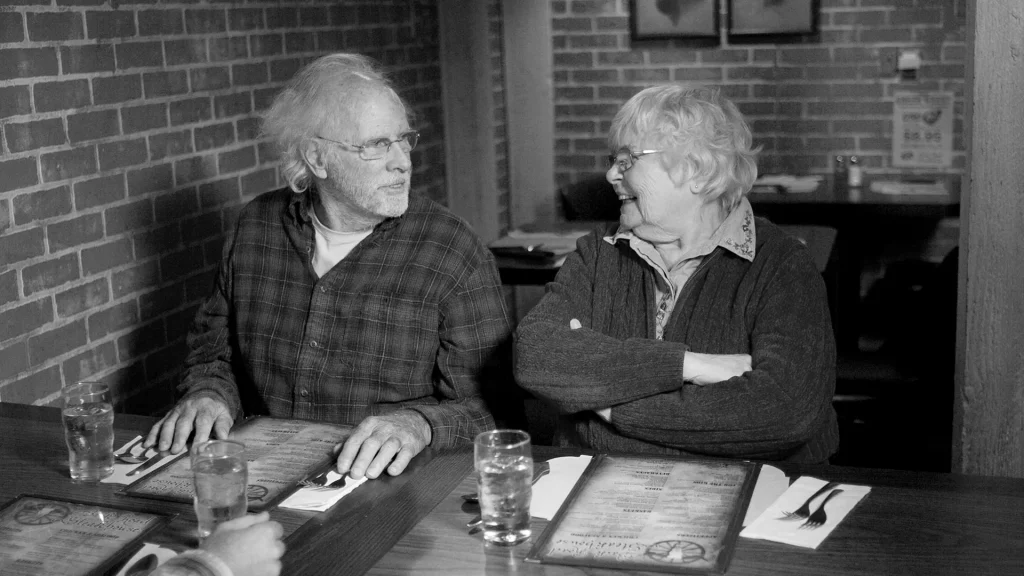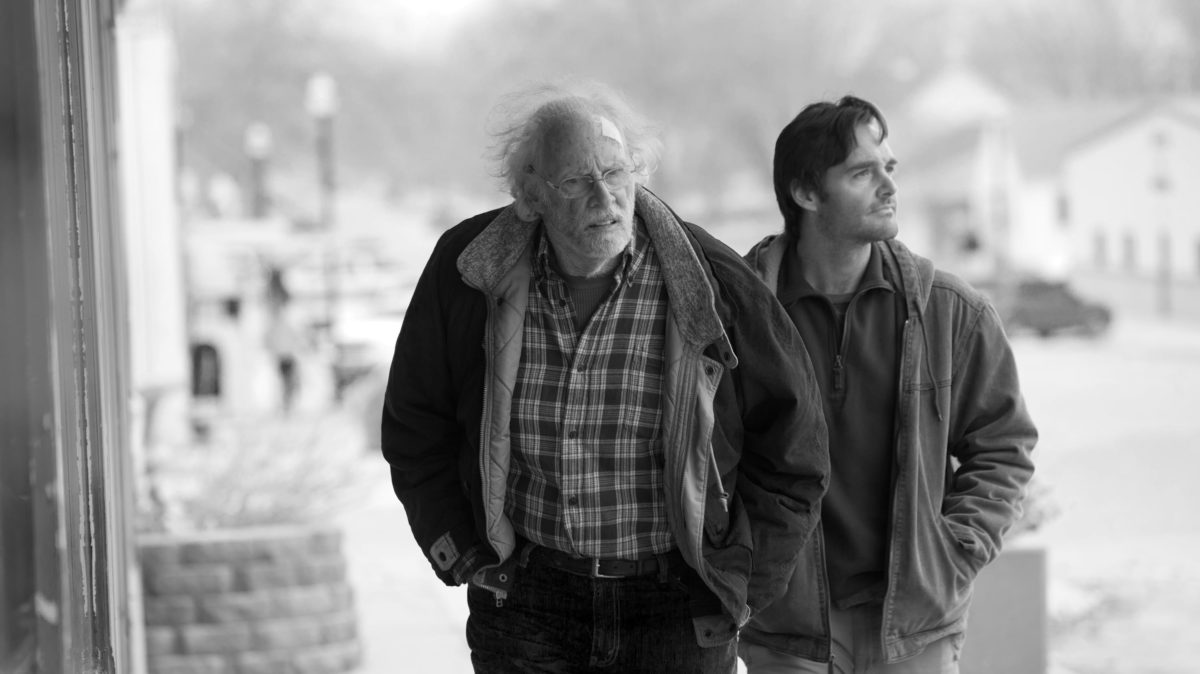Well, sir, I guess there's just a meanness in this world
If you can get past the boredom, Nebraska will sneak up on you. Despite an all-time evocative poster and a premise that sounds like a grand American Ozu film — old man (Bruce Dern) and his son (Will Forte) wander the American heartland in search of a million dollar jackpot, only to encounter shadows from the old man’s past — the execution is not nearly as poetic as it could be. For at least the first half of the film, it’s downright dull: a geezer doddering from one mishap to the next in a state of half-drunken confusion.
But then, slowly and surely, it accumulates power. It settles into exploring the various characters of Woody Grant’s (Dern) hometown, and the film’s mission becomes exploring the contradictions — the alternating nobility and pettiness — of lower-middle-class middle-America. This is a rich vein for Payne. So many of his past films had connections to Nebraska that I, for years, correctly assumed he had grown up there without verifying it. But his depiction of the state is different here. He previously used the place as a stand-in for somewhere of existential boringness, the geographic essence of Wonder Bread, USA. Here, he fleshes out that portrait with much more ambivalence and nuance.

Woody and his son David (Forte) meet a colorful ensemble of figures in Lincoln, Nebraska who know Woody from his younger boozing-and-womanizing days. Some of them recall him with fondness for his vitality and generosity; others with sympathy, knowing he faced the trauma of military service and family tragedy; and others, including many of those who were closest to him, with resentment at the way he pissed away his blessings with his alcoholism, taking loved ones for granted.
And as the flip sides of the various town residents come to light, the mythical million dollar prize becomes a complex symbol: first, of the fading American dream, but also so much underneath: of broken promises and the fading ink of history and the desperation that accompanies hope. Gatsby’s greenback light. Money (and its absence) is so intertwined with the social order that Woody’s promise of quick wealth becomes a beacon for an entire town’s rusted hopes and ambitions.
Dern is terrific in the lead — Woody is only half-cognitively present most of the time, and Dern refuses to soften or open the character too much, making his rare glimmers of fiery lucidity (like the direct way he notes that he saw a family member die) all the more profound. His climactic journey to his childhood home (in which nothing of note actually happens, but is the film’s emotional crest nonetheless) has an apocalyptic feeling to it, as if Woody is exorcising his demons.

The rest of the cast is a bit more up and down. I really love June Squibb as Woody’s wife Kate; she gets to play with a real comic nastiness that brings most of the movie’s biggest laughs. Bob Odenkirk is also great fun as David’s brother. Forte, on the other hand, is fine but doesn’t have a firm grasp on the material: Like George Clooney in The Descendants, he plays the protagonist with just one tenor. My theory that every Payne movie would be better if Paul Giamatti played the lead holds up here, though I imagine he would have been a little too old for Forte’s part.
Payne takes a bold risk with Nebraska’s look by making it intentionally forgettable. The cinematography is bland, making little use of the expressive possibilities of black-and-white photography, leaving us with a mealy gray stew that looks like someone ran normal color footage through a monochrome filter. I get it conceptually — retrospection of a quiet life is actually quite boring, not romantic — but it’s still a chore to sit through.

By the end, I found it impossible not to feel invested in these characters and lovely little world. The ambivalent ending, with one of those perfect “two people driving off in a car” final shots, is genuinely evocative. It sticks the landing, bringing Nebraska closer to greatness than you’d possibly guess from the meandering opening hour, and without any cheap tricks like character deaths. But it doesn’t quite pass through to great, just upper-end good.
- Review Series: Alexander Payne
Is It Good?
Good (5/8)
Awards, Honors, & Rankings
Dan is the founder and head critic of The Goods. Follow Dan on Letterboxd. Join the Discord for updates and discussion.

